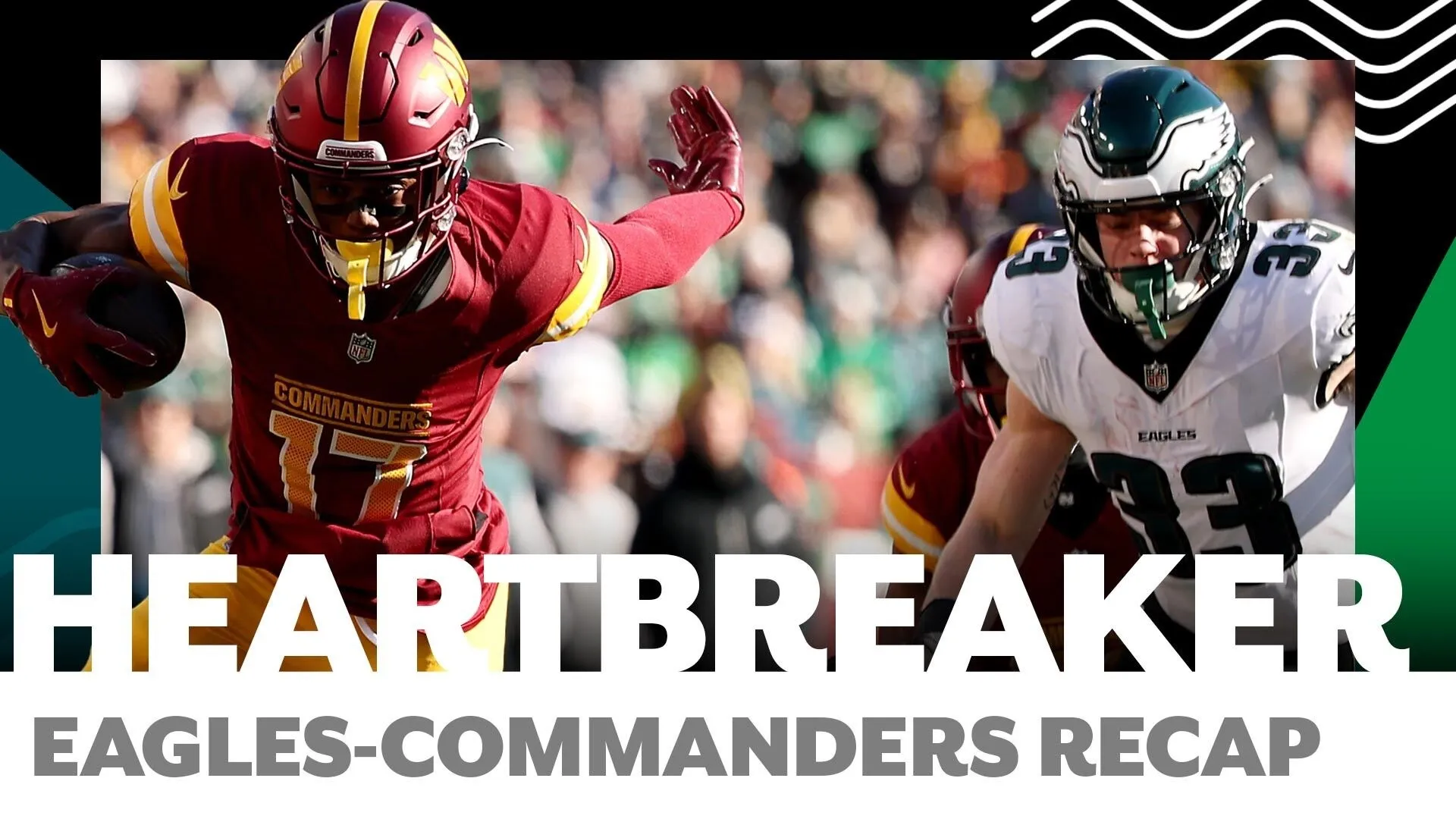Earlier this week, head coach Nick Sirianni admitted he maybe could have been more aggressive on the penultimate offensive drive of the Eagles’ disastrous 35-31 loss to the Cardinals.
So where does that leave Brian Johnson?
And was he handcuffed on those late-game play calls?
Stay in the game with the latest updates on your beloved Philadelphia sports teams! Sign up here for our All Access Daily newsletter.
That’s not to say that Johnson hasn’t struggled at times this season; he clearly has. But those are fair questions to ask.
Because Johnson is the Eagles’ offensive coordinator and play-caller but it’s very clearly a collaborative approach to play-calling and Sirianni is the offensive-minded head coach in charge.
On Tuesday, Johnson was given his chance to explain the calls. After a holding penalty on Jordan Mailata, the Eagles faced a 1st-and-20 from the Cardinals’ 30-yard line with just over 4 minutes to play in the fourth quarter.
“When you get in those type of 4-minute situations, there are three different things that you're managing at that point,” Johnson said. “I think the first is obviously down and distance. You're managing the clock; obviously, you don't want to try to give them the ball back. And then you're managing the kick line. All three of those things really come into play.”
News
Jonathan Gannon simply out-coached the Eagles in this instance. Gannon’s decision to go for an onside kick was a win-win. Either he gets the ball back or he knows Sirianni will go conservative, giving his offense a chance to slice through the Eagles’ broken defense one more time.
On Tuesday, Johnson was asked about the role Sirianni plays in his ear during those keys moments.
“We have constant communication in terms of the game management and how we want to execute different scenarios and different outcomes that come throughout the course of the game, whether that's two-minute, four minutes, all these different situations that pop up,” Johnson said. “It takes everybody in terms of all of these different clock managements and situations that come up throughout the course of the game.”
As a reminder, here’s how those three plays before the 43-yard field goal played out:
1st-and-20: Jalen Hurts runs a QB power to pick up 4 yards
Not a terrible start. The Eagles get some positive yards.
2nd-and-16: Hurts carries the ball again and loses 3 yards
This is the play that really sinks the possession. Johnson admitted that losing yardage on this play is what led to the play call on 3rd-and-long. But as for the actual call on second down? He gave credit to Budda Baker.
“That was a play we've run over the last couple weeks for some really explosive runs,” Johnson said. “Had a 15-yarder, had a 10-yarder earlier in the game on a very similar play. That one, with those guys in that situation, 2-and-16, you try to catch them off guard playing with a second and pass call and see if you can pop one and get some yardage to get you into a safe spot to where you can go be super aggressive on third down once you're in comfortable field goal range.
We end up losing four and that kind of changed the mode and the mindset for the third down play.”
3rd-and-19: A screen pass to Kenny Gainwell picks up 4 yards
“So now you get yourself into a [3rd-and-19], and you want to put yourself in a position to score points, because that's not obviously an area on the field where you're going to punt the ball and with the way the wind was in that stadium on that side, like we had to get to the kick line,” Johnson said.
“That was the [3rd-and-19]. Obviously, had multiple options on that play call. If you get a pressure look, that's what we are going to, and if we didn't get a pressure look, then the play would have been something else. The guys executed what we tried to do. Unfortunately, just weren't able to get it done.”
4th-and-15: Jake Elliott kicks a 43-yard field goal
That field goal gave the Eagles a three-point lead until the Cardinals simply marched down the field to take the lead back with their fourth consecutive touchdown in the second half.
It’s important for a coaching staff to understand the flow of the game. Think back to the Super Bowl, when Gannon’s soft defense allowed the Chiefs to move methodically down the field when the only thing worse than the Chiefs scoring was the Chiefs scoring slowly.
Gannon seemed to learn from this. Because he realized there was a benefit to the Eagles’ scoring quickly on Sunday and he might have even counted on Sirianni’s sometimes-conservative nature playing in his favor.
In this instance, the Eagles have to realize that their defense was offering zero resistance. Maybe that should have played a factor in the offensive play-calling on that second-to-last drive.
Johnson was asked why it didn’t.
“I don't know if I can answer that question for you,” he said. “I don't know if I can answer that question. But for us, offensively in terms of the situation and what we were trying to accomplish, that was the mode that we were in offensively.”
Johnson couldn’t answer that question because it’s one that only Sirianni can. And when you’re trying to divvy up blame for some struggles on offense, it’s a tricky thing to do.
Subscribe to Eagle Eye anywhere you get your podcasts:
Apple Podcasts | YouTube Music | Spotify | Stitcher | Simplecast | RSS | Watch on YouTube


